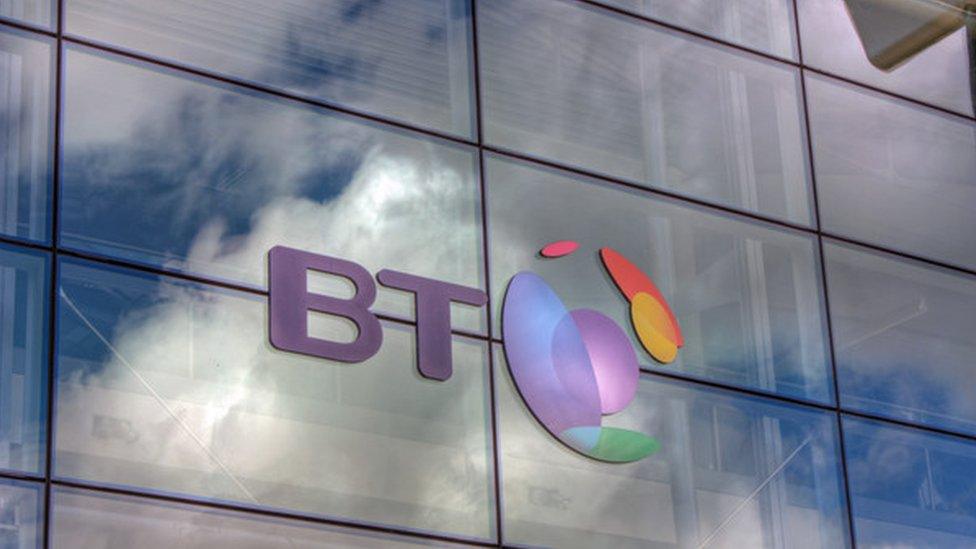Ofcom tells BT to open up cable network to rivals
- Published
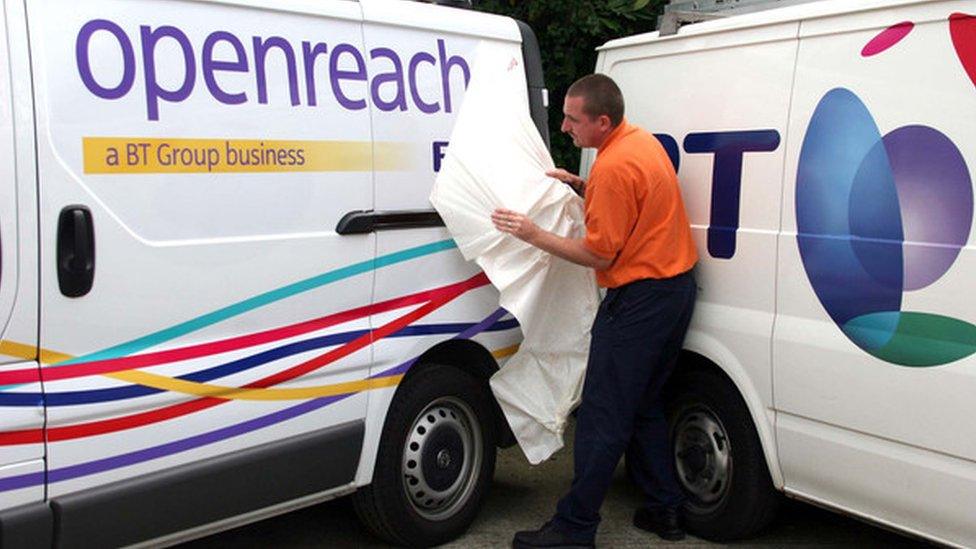
Communications watchdog Ofcom has said BT must open up its cable network and allow competition to improve UK internet connections.
The regulator has so far stopped short of demanding a complete break-up of BT, but said this was still an option.
BT welcomed the report and said it was happy to let other companies use its network, if they were keen to invest.
Ofcom also said , externalthere was a digital divide in the UK between those with the latest technologies, and those without.
It has proposed that decent, affordable broadband should be a universal right.
Rivals had called for a split between BT and its Openreach operation, which runs its cables, fibre and network infrastructure.
Companies such as Sky, Vodafone and TalkTalk, who pay to use the network, say that BT underinvested in Openreach, leading to a poor service with interruptions and slow speeds.
Now BT will be told to allow easier access for rivals to lay their own fibre cables along Openreach's telegraph poles and in its underground cable ducts.
Tougher rules
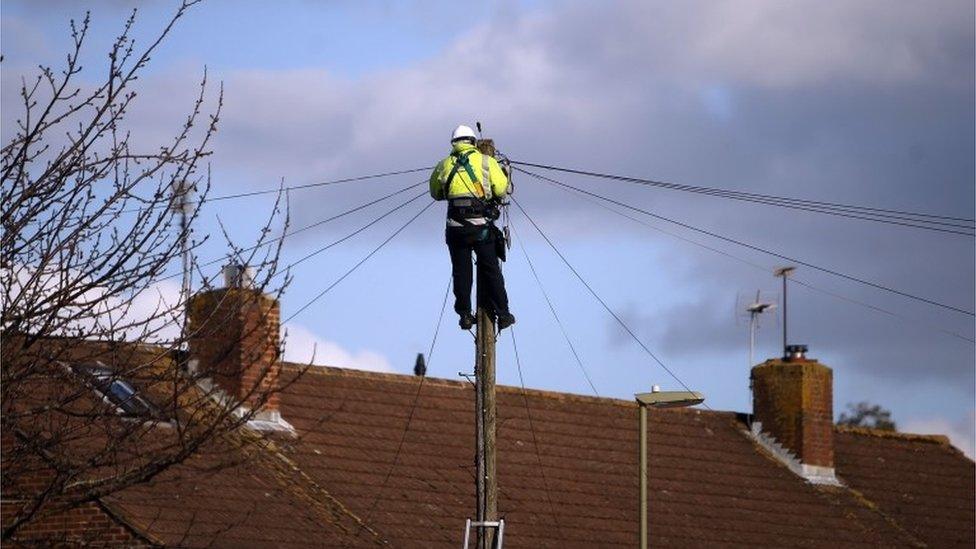
BT welcomed Ofcom's report
Ofcom also says it intends to introduce tougher rules on BT's faults, repairs and installations.
It says Openreach should be governed at arm's length from BT, with greater independence in taking its own decisions on budget, investment and strategy. It adds that a complete split between Openreach and BT "remains an option".
The Chief Executive of Ofcom, Sharon White told the BBC: "Openreach does need major reform and the key thing is that it's independent so that it responds to all its customers, not just BT.
"If we cannot get the responsiveness to customers that we're seeking, then ... we reserve the right, formally, to separate [BT and Openreach]."
'Monopoly provider'
BT's shares were up more than 4% following the publication of the report.
A BT spokesman said: "Openreach is already one of the most heavily regulated businesses in the world but we have volunteered to accept tighter regulation.
"We are happy to let other companies use our ducts and poles if they are genuinely keen to invest very large sums as we have done."
But Ofcom's report says that the evidence "shows Openreach still has an incentive to make decisions in the interests of BT, rather than BT's competitors".
BBC technology reporter Jane Wakefield said: "That will be something rivals, from big players like Sky to small internet service providers that are attempting to bring broadband to areas not yet served by BT, will recognise all too well, and Ofcom's decision that the two should stay together for now will be seen as a blow."
A spokesperson for Vodafone said: "BT still remains a monopoly provider with a regulated business running at a 28% profit margin.
"We urge Ofcom to ensure BT reinvests the £4bn in excess profits Openreach has generated over the last decade in bringing fibre to millions of premises across the country, and not just make half-promises to spend an unsubstantiated amount on more old copper cable"

Analysis by Rory Cellan-Jones, BBC Technology Correspondent
BT's Openreach division is the biggest force in British broadband - and critics say it's not used that power to good effect. The likes of TalkTalk and Sky, which rely on Openreach to connect most of their customers, charge it with poor service and failing to invest enough in the fast fibre network Britain needs.
Ofcom's report shows that it shares many of their concerns - but it's stopped short of the radical action they wanted. BT will not be forced to sell Openreach in the short term - though that threat remains in the regulator's back pocket if it doesn't see the changes it wants.
Much of the criticism of BT has centred on its continued reliance on old copper cables to carry fast broadband connections into homes from its fibre network - rather than laying fibre right into homes. Ofcom's Sharon White told me "fibre is the future" - and compared the UK unfavourably with countries like Japan in hooking up homes and businesses to ultrafast connections.
BT must be in two minds about the report - relieved that what it sees as the massive disruption of a break-up isn't imminent, but concerned that the regulator will be on its back for years demanding more co-operation and greater investment.
Customers will simply want to know when they will get faster connections and a better service. Ofcom itself will be in the firing line if that doesn't happen soon.

Telecoms consultancy CCS insight said: "The news will be a relief for BT, but rivals will also claim victory as Openreach remains under severe scrutiny.
"The tone of the statement reflects concern about BT's role in the UK's broadband future. Opening the network offers opportunities for competitors; new minimum standards will ensure customer service stays in the spotlight."
Social exclusion
The report also says the surge in data speeds has led to a "digital divide" between those who have the fastest internet access and those who are left behind.
It says: "As the world goes increasingly online, those left behind risk social and economic exclusion. We have found that people who are left behind are usually less well-off or living in vulnerable circumstances."
"2.4 million households and small businesses (around 8% of all UK premises) cannot yet access a decent broadband speed of 10Mbits per second," the report said.
The report, Making Communications Work for Everyone, says: "We will work with the UK Government to make decent, affordable broadband a universal right for every home and small business in the UK.
"The universal right should start off at 10Mbits per second for everyone, and then rise in line with customer demand over time."
- Published26 July 2016
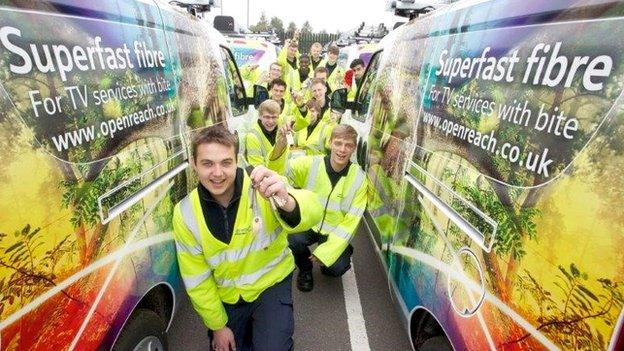
- Published1 February 2016
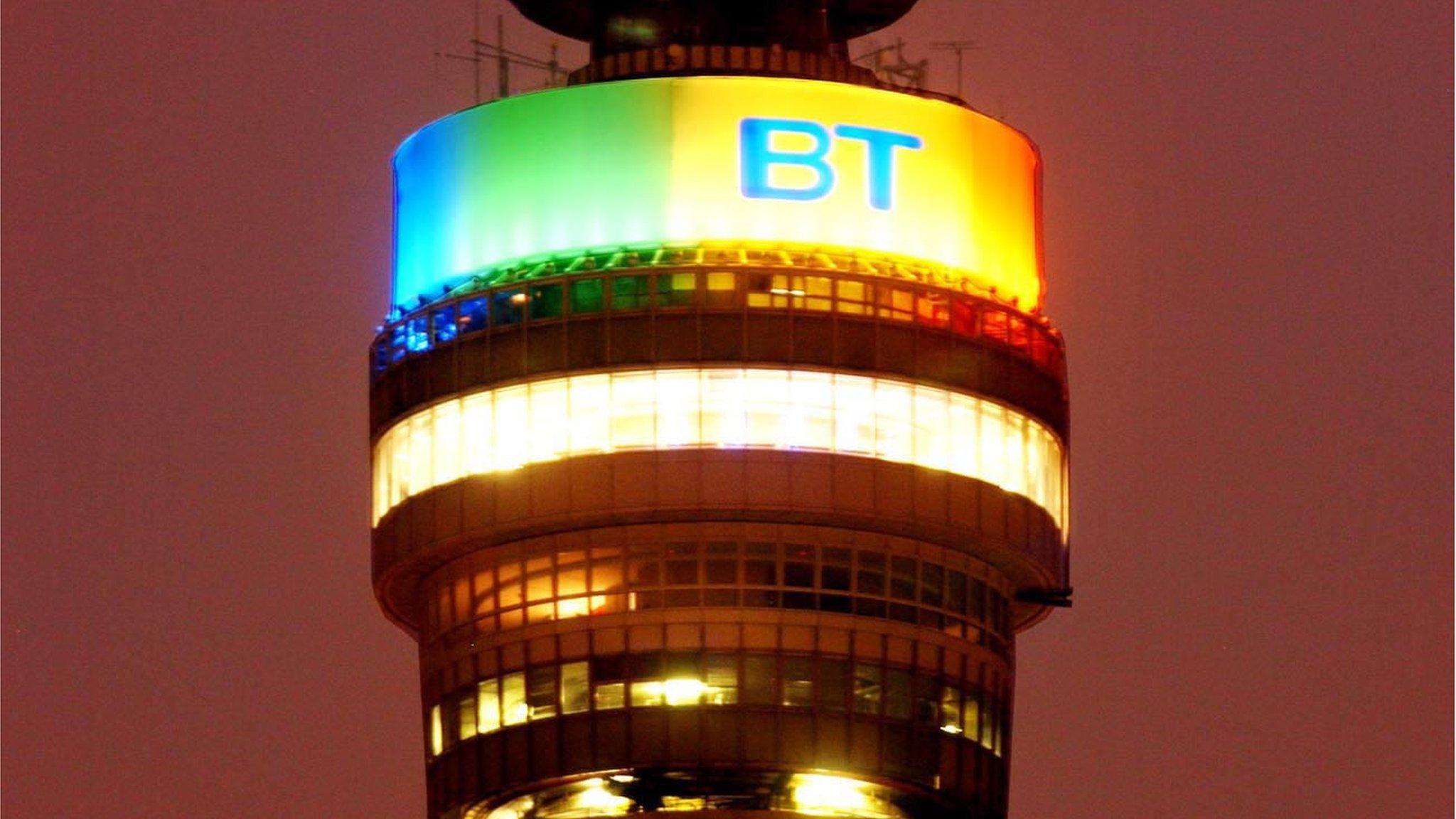
- Published15 January 2016
